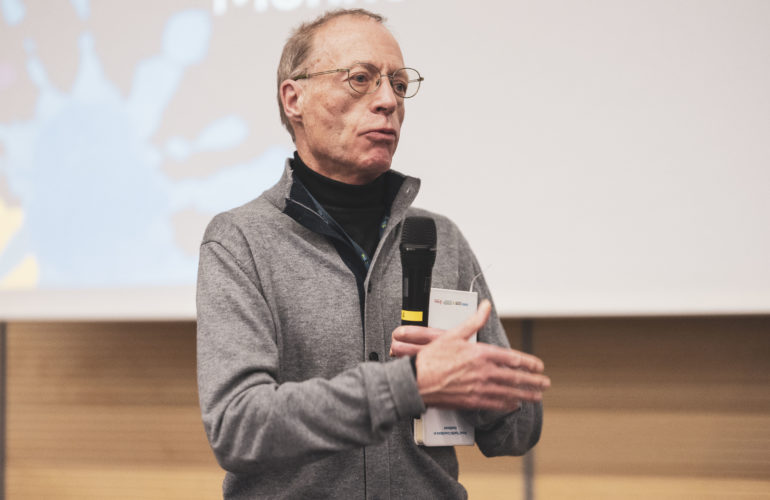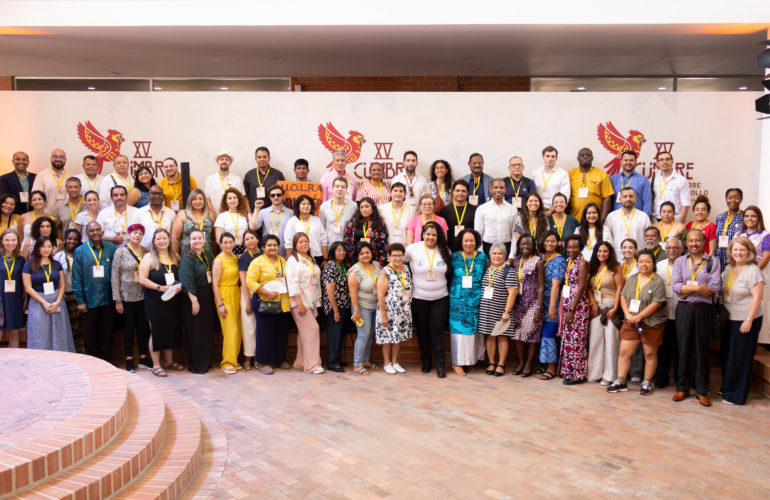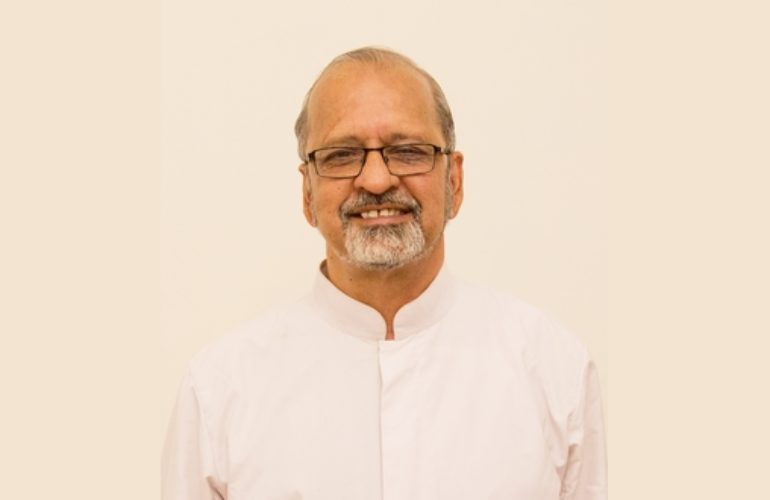Southern African Bishops’ Conference Coordinates Church Response to the Needs of Migrants and Refugees
The Office for Pastoral Care of Migrants and Refugees in Southern Africa leads efforts to coordinate a sustainable Church response to the needs of migrants and refugees in South Africa and neighboring countries.

Since 2018, the Southern African Catholic Bishops’ Conference (SACBC), ICMC’s member in Botswana, South Africa, and Eswatini, has sought to address the needs and challenges of refugees and migrants in the Southern Africa region.
“People tend to think of African migration as Africans moving toward Europe and other destinations in the Global North,” explains Sister Maria de Lurdes Lodi Rissini, Coordinator of the SACBC’s Pastoral Care of Migrants and Refugees (PCMR). “In reality, many refugees and migrants move within Africa, including many thousands in the Southern African region.”
Establishing the Pastoral Care of Migrants and Refugees
The PCMR is coordinated by a multidisciplinary team, including the Jesuit Refugee Service South Africa, Caritas South Africa, the Scalabrini Institute for Human Mobility in Africa (SIHMA) the SACBC’s Catholic Parliamentary Liaison Office, Catholic Relief Services (CRS), and various refugee consortiums. It acts as an official Church voice on issues related to migrants and refugees, making representations to government and other bodies, and provides a mechanism for effective communication within the Church and among Catholic and other groups involved in migrant and refugee activities.
Since 2018, Sr. Rissini has led efforts to gather information on the situation of refugees and migrants in South Africa and the extent to which Church structures were engaged with these populations. This work highlighted the key issue of stateless and undocumented migrants within the region, many of whom are children whose births were not registered, and the vulnerabilities of refugees and migrants working in the informal sector. Within South Africa, many refugees and migrants are also at severe risk of harm due to increasingly strong anti-immigrant sentiments among the general population.
“We gathered information from many different Church organizations,” Sr. Rissini continues. “While we found some existing services and assistance, there was a real lack of a coordinated, sustainable Church response to the situation of refugees and migrants in South Africa.” A proposal to the SACBC leadership led to a 2019 Bishops Resolution in support of a new migrant and refugee office within the SACBC, and the PCMR was formally established at the end of 2019.
Building a coordinated Church response to migration in South Africa
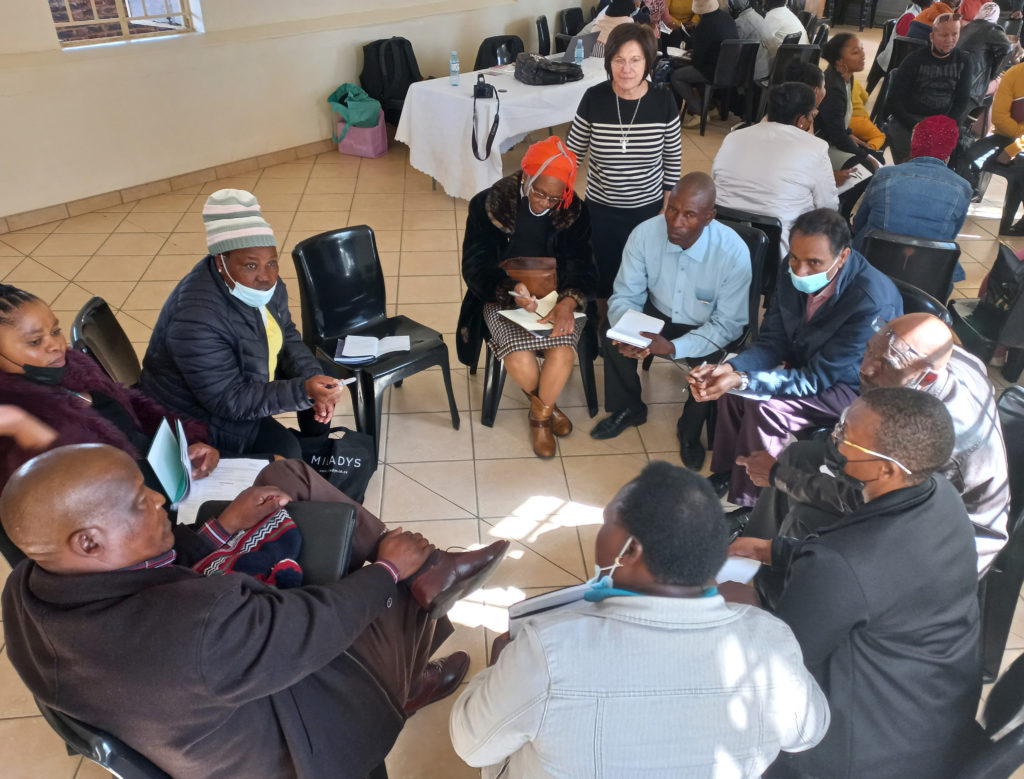
Although the work of the PCMR was extremely delayed by the impact of COVID-19 in 2020-21, during which time resources were pivoted toward supporting emergency assistance for refugees and migrants impacted by the global pandemic, 24 dioceses had established PCMR offices or desks by the end of 2021.
From 2019, support from the Italian Bishops Conference (CEI), ICMC’s national member in Italy, has enabled the PCMR to implement a program of outreach, networking, research, training and capacity-building, and direct assistance for refugees and migrants, within South Africa and in neighboring countries. “Our biggest mission is to have, in every parish, people dedicated to this new mission of migrants and refugees,” said Archbishop Buti Tlhagale, SACBC Liaison Bishop for Migrants and Refugees, in 2021.
Training and capacity-building have focused on sensitizing Church organizations to the needs of refugees and migrants and the ways in which they can respond. A November 2021 workshop for diocesan coordinators was followed by a series of training and capacity-building events for Church staff and volunteers, taking place throughout 2022 in dioceses and parishes in South Africa, Botswana, and Eswatini.
“We’ve focused strongly on building an understanding of the needs of refugees and migrants, and supporting action planning at the diocese and parish level,” explains Sr. Rissini. “We are also building a network at the diocesan, metropolitan, and national levels, to foster multi-disciplinary and multi-stakeholder collaboration and ensure we address the plight of migrants in a coordinated and sustainable manner.”
Responding to statelessness and a lack of documentation
Statelessness and a lack of documentation affect many migrants and refugees in South Africa. “This can be because people have arrived without papers to work in the informal sector,” explains Sr. Rissini. “But it’s also an historical issue of people not speaking the language or understanding the systems to register. This means that many children were not registered at birth, sometimes from as far back as the 1990s. So we have generations of statelessness.”
Undocumented and stateless children are a key priority for the PCMR. “We know that there are many of these children who are not receiving an education, but there is no data that we can use to evidence this to policymakers or target our assistance in parishes.”
“Statelessness and a lack of documentation can come about because people have arrived without papers to work in the informal sector. But there are also historical issues of people not speaking the language or understanding the systems to register, which mean that many children were not registered at birth, sometimes from as far back as the 1990s. So we have generations of statelessness.”
Sister Maria Rissini, head of SACBC’s Migrant and Refugee Office
To remedy this lack of data, the PCMR is working with the Centre of Faith and Community at the University of Pretoria to implement a mobile data capture project. Diocesan coordinators for pastoral care for migrants and refugees are using a bespoke mobile application to collect data on access to education among undocumented and stateless children, with the project’s first results due in late 2023.
Assisting Mozambican and other mining communities in South Africa
Mozambican migrant workers have been moving to South Africa in search of employment for more than a century, and many fled there as refugees to escape the 1979-1992 civil war. Mozambicans work predominantly in the mining and farming sectors, both formally and informally, and many are undocumented or stateless.
To better understand the reality of Mozambican mine workers in South Africa, in 2022 the PCMR began a partnership with the Episcopal Commission for Migrants, Refugees and Displaced Persons (CEMIRDE), part of the Episcopal Conference of Mozambique.
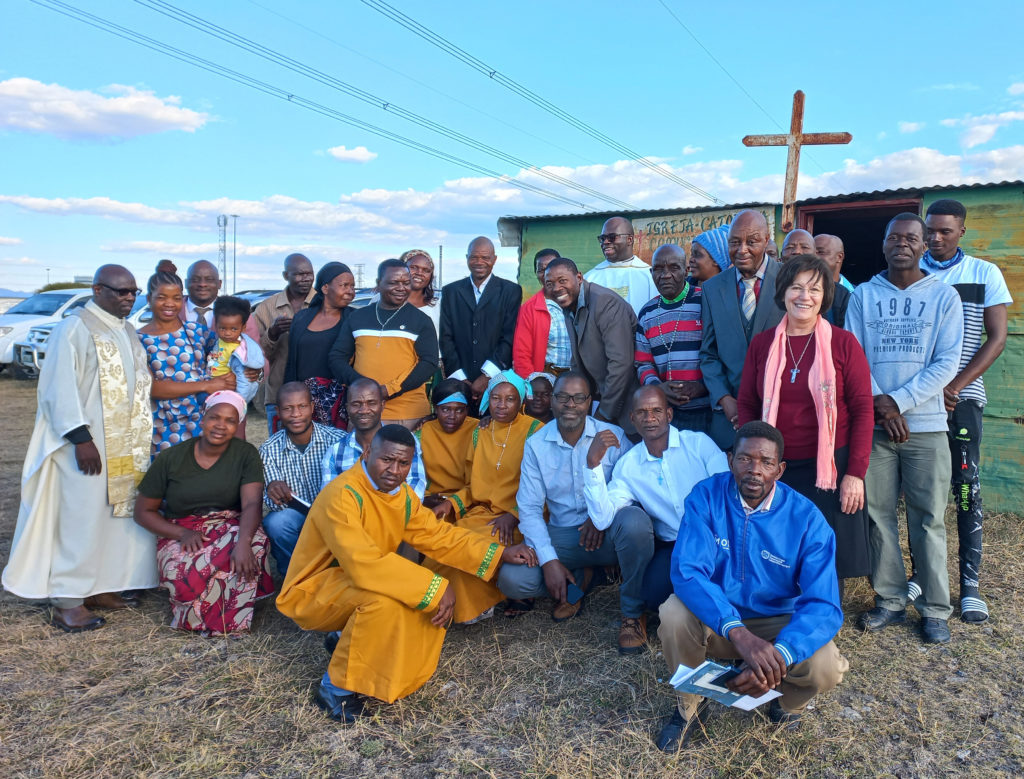
The partnership organized a two-day workshop on migration for mining communities in Benoni on 28-29 May 2022, and a pastoral visit of South African Bishop Robert Mphiwe to the Mozambican and mining communities in the diocese of Rustenburg on 27-28 August. Participating miners shared their experiences and challenges in the mining industry in South Africa, related to registration, documentation, and restrictive visa arrangements for visiting family members. “We discussed a number of things between ourselves and Mozambique, including facilitating the appointment of Mozambican priests to South Africa […] to work with and become pastors to the Portuguese-speaking communities,” said Archbishop of Johannesburg, Buti Joseph Tlhagale OMI.
Providing lifesaving assistance at borders
During 2020-21, the PCMR and Caritas South Africa supported Church organizations to provide direct assistance for refugees and migrants in parishes located in South Africa’s border areas.
In Aliwal, a town a few kilometers from the border with Lesotho in which thousands of stateless children and adults live, a partnership with Caritas Aliwal North implemented a clothing voucher scheme, distributed food parcels, and ran local workshops on inclusion and integration.
In Musina, on the Zimbabwe border, the busiest port of entry to South Africa and a major transit route for refugees and migrants from Zimbabwe, the Democratic Republic of the Congo, Rwanda, and Burundi, the office resourced the Roman Catholic Women’s Shelter to provide emergency assistance and accommodation for women who had experienced sexual violence in their country of origin or during their journey to South Africa, and their children.
Following an acute crisis at South Africa’s borders in December 2021, PCMR joined with the Inter-Regional Meeting of the Bishops of Southern Africa (IMBISA), and the Vatican’s Migrants and Refugees Section to formulate a response to the acute vulnerability of migrants and refugees in border areas. Supported by Caritas Italiana and the International Catholic Mission Society (Missio Munich), a resulting pilot project on cross-border pastoral care and advocacy is implemented in collaboration with four ICMC members: the Episcopal Conferences of Zimbabwe, Mozambique, Lesotho, and Southern Africa. It is coordinated by Caritas South Africa and IMBISA.
Each Episcopal Conference engages with a wide range of organizations at the borders to implement the project, including local organizations, dioceses, and volunteers in parishes, and collaborates with South African ports of entry. Their work provides coordinated advocacy and pastoral care for people crossing the borders into South Africa and those who have been deported, including the provision of emergency items, legal assistance, temporary accommodation, and tracing family members.
Project staff and volunteers inform those crossing of the legal requirements to enter South Africa, providing information in migrants’ and refugees’ languages at the borders of Zimbabwe, Mozambique, Lesotho, and South Africa. This activity has helped thousands of people cross the borders with the proper information and correct documentation, substantially reducing their vulnerability to trafficking, and strengthened both the knowledge of migrant situations at the borders and leadership on migration in border areas.
Looking to the future
“It’s crucially important what we as the Church can bring in terms of credibility and our ability to ‘open doors’. We can build relationships with governments and other actors that have the power to bring about real change for migrants and refugees, and that is invaluable.”
Sister Maria Rissini, head of SACBC’s Migrant and Refugee Office
“We have taken some really important steps on the issues of statelessness and lack of documentation for Mozambicans in South Africa, although much remains to be done,” says Sr. Rissini, pointing to better awareness of the need for children to be registered in South Africa, including amongst communities in Mozambique, and the opening of discussions with the consulate of Mozambique on providing identification for undocumented nationals in South Africa. “In the immediate future we will continue to provide coordination and networking within the Church in South Africa, so people know where to go for assistance and guidance, and support those in parishes to provide friendship, support and welcome.”
Reflecting on lessons learned, Sr. Rissini emphasizes the importance of coordinating with other countries in the region, providing information and capacity-building for volunteers and pastoral care agents in dioceses and parishes, and maintaining a dialogue with bishops to ensure they can contribute their own local migration realities to the Church response.
“It’s also crucially important what we as the Church can bring in terms of credibility and our ability to ‘open doors’,” she concludes. “We can build relationships with governments and other actors that have the power to bring about real change for migrants and refugees, and that is invaluable.”
****
* ICMC promotes information and experience sharing as well as cooperation between its members organizations. Our members are the national Episcopal Conferences worldwide, including the Episcopal Conference of Italy, SACBC, and the Episcopal Conference of Mozambique, and Catholic Bishops Conferences and Catholic-inspired organizations serving people on the move.
ICMC also coordinates regional working groups that promote and enhance safe migration, humanitarian assistance, and pastoral care to migrating people, provides assistance and protection to vulnerable people on the move, and advocates for sustainable solutions for refugees and migrants.

Rachel Westerby
Independent writer and researcher on migration, refugees and human rights.

